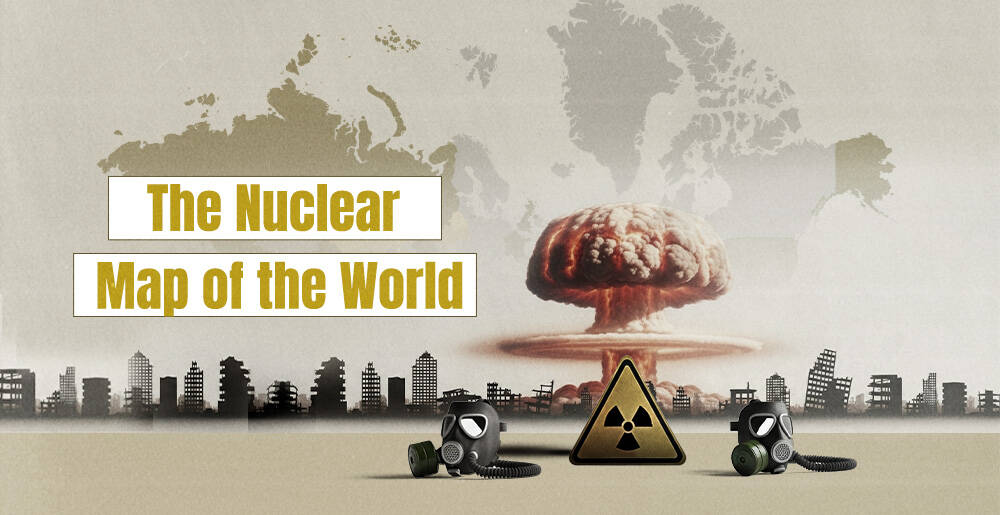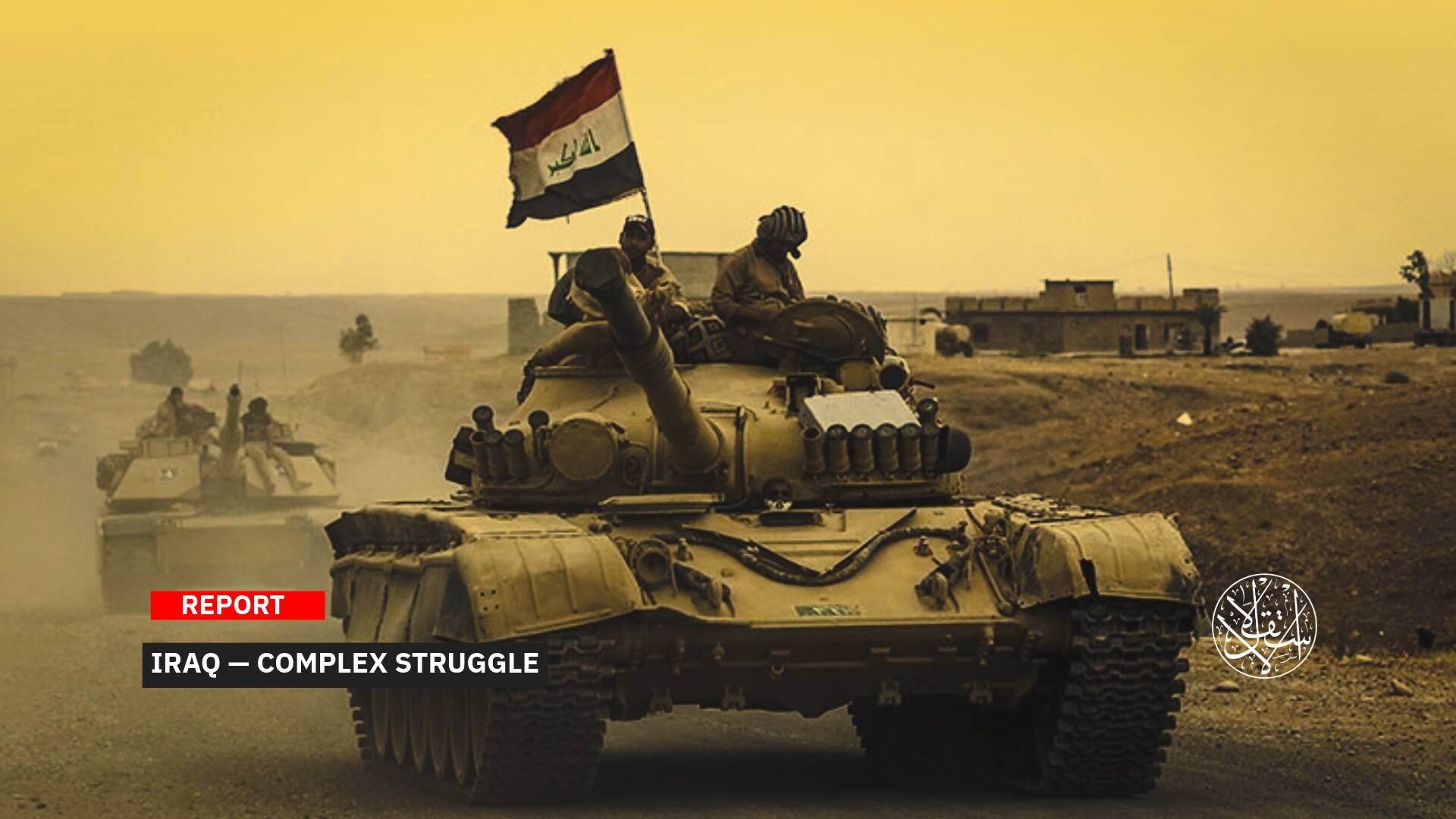UAE Hosts Israeli Arms Firms Amid Gaza Genocide Accusations: Here Are the Details

Fifteen months into "Israel’s" genocidal war against the Palestinian people in Gaza, and amid a long-awaited yet fragile ceasefire, Israeli arms manufacturers received a warm welcome in the UAE.
A total of 34 Israeli defense companies took part in the International Defence Exhibition (IDEX) and the Naval Defence Exhibition (NAVDEX) 2025, held in the Emirati capital, Abu Dhabi, from February 17 to 21.
IDEX, organized by the ADNEC Group in collaboration with the UAE’s Ministry of Defence, drew leading global defense firms, policymakers, and experts from 65 countries, showcasing what organizers described as the latest technologies and solutions for global peace and security.
Many of the companies present at the Middle East’s largest defense exhibition are key suppliers of military equipment used by the Israeli army in its war on Gaza.
A Warm Welcome
Boaz Levy, CEO of "Israel" Aerospace Industries (IAI), told CNBC during the event, “We were warmly welcomed, and we truly felt at home here.”
Levy, who heads the country’s largest state-owned aerospace and aircraft manufacturer, added, “The hospitality, the visits from all our customers, and the management here were really good—it felt just like any other major exhibition around the world.”
“We received a warm reception, and many people are coming here saying how great it is to see Israeli companies present—it’s important for relations,” Taly Kosberg-shmueli, executive vice president of Israeli aerostat systems company RT, told CNBC.
The participating Israeli firms ranged from major aerospace and heavy weapons manufacturers to smaller startups specializing in communications and surveillance technology, drawing enthusiastic interest from attendees.
Large crowds gathered around Israeli drone displays and other battlefield technologies, engaging company representatives in the bustling exhibition hall, asking questions about the equipment.
Images from the event showed Emiratis and Saudis dressed in traditional attire, alongside uniformed members of the UAE military, warmly shaking hands and conversing with their Israeli counterparts.
The scene over the five-day event stood in stark contrast to the last major airshow in the UAE featuring Israeli defense companies.
The Dubai Airshow, which takes place every two years, was held in November 2023—just one month after the start of "Israel’s" war on Gaza.
At the time, only three Israeli defense firms—IAI, Elbit Systems, and Rafael Advanced Defense Systems—were present.

The "Israel" pavilion at the 2023 Dubai Airshow was largely empty, as Israeli representatives avoided speaking to the media.
While the UAE welcomed Israeli defense companies, it was the firms themselves that chose to limit their presence, fearing potential backlash over the war.
At the time, a diplomatic official, speaking anonymously to U.S.-based alhurra, stated, “Given the situation in ‘Israel,’ companies found it difficult to send delegations to represent them.”
By 2024, as the civilian death toll in Gaza mounted, France banned Israeli companies from exhibiting at the Euronaval defense trade show—though a Paris court later overturned the decision. Abu Dhabi, however, never considered taking similar action.
Benjamin Levinson, founder and chairman of Heven Drones and a former Israeli military officer, emphasized that security concerns remained paramount.
“What we’ve heard from our counterparts in the UAE and other countries is that security is the top priority,” he said in a media interview. “ srael, the U.S., the UAE, Saudi Arabia, and the entire region share the goal of defeating terrorism—which is why we must have the best technologies.”
Throughout the war, the UAE and "Israel", which normalized relations under the 2020 Abraham Accords, maintained trade ties and continued daily flights between the two countries.
The UAE issued official statements condemning the Israeli bombing of Gaza and the ensuing humanitarian catastrophe—which displaced nearly the entire population of the Strip—but stopped short of taking any action that might jeopardize normalization.
Battlefield-Tested Technology
Israeli defense companies are looking to capitalize on the combat-proven use of their products in "Israel’s" war on Gaza and against the Houthis, using it as a selling point in the export market—starting with the Gulf, according to the French intelligence publication Intelligence Online.
In a report on February 18, the magazine noted that many of these military systems were showcased at IDEX, where Emirati interest in Israeli battlefield-tested defense technology was evident.
Major Israeli defense firms, including Rafael and Elbit Systems, have already formalized partnerships in the UAE under the Abraham Accords—though unofficial ties have reportedly existed since at least 2007.
The Israeli government has faced widespread accusations of committing atrocities and genocide, as the civilian death toll in Gaza continues to rise.
However, Benjamin Levinson maintained that potential clients are specifically seeking systems that have been tested in real combat, according to comments reported by The National.
Now, Israeli startups are also aiming to attract Gulf investors and buyers, marketing products designed for the evolving hybrid warfare seen across the Middle East—from Gaza to Yemen.
Among them is Tomer, a subcontractor for the Arrow missile defense system, developed by Israel Aerospace Industries (IAI).
The Israeli military frequently deploys Arrow missiles—capable of reaching 2,400 kilometers and intercepting targets at an altitude of 100 kilometers—to counter Houthi ballistic missile launches from Yemen, as well as Iranian aerial threats, most recently on October 1, 2024.
Also present at the exhibition was Israel Weapon Industries (IWI), manufacturer of the widely used Tavor assault rifle, deployed by Israeli ground forces in Gaza.
The company exhibited under the umbrella of its parent firm, SK Group, owned by businessman Samy Katsav.

During the prisoner exchange ceremony on January 25, 2025, in Palestine Square, Gaza City, Hamas fighters were seen carrying Tavor rifles seized from Israeli Occupation Forces during the assault on settlements as part of Operation al-Aqsa Flood.
The French magazine also confirmed that the group would be showcasing products from its subsidiary, Meprolight, which specializes in electro-optical systems. These systems have been used in Gaza since 2014 to identify targets in densely populated urban environments.
Meanwhile, Smart Shooter was present at the exhibition with its SMASH fire control system, which can be mounted on a Tavor rifle.
During the battles in Gaza, fighters from the Maglan and Golani brigades were seen using the system on their rifles to neutralize drone attacks.
In January, Smart Shooter partnered with Heven Drones, a company founded by Bentzion Levinson in Miami, and also participated in IDEX to integrate SMASH systems onto its drones.
The Israeli startup Spear UAV was also in attendance, presenting its Viper kamikaze drone series.
In December 2024, the company announced that it had signed a deal to sell its Viper 300 drones to an undisclosed country for $20 million.
For precision strikes in Gaza, the Israeli military has deployed the Spike Firefly system from Rafael—also known as Moaz—a loitering munition that operates like a drone to confirm and engage targets.
Aeronautics Defense Systems, a Rafael subsidiary and long-time supplier of drones to Azerbaijan, showcased its Orbiter system, primarily designed for intelligence, surveillance, reconnaissance (ISR), and target acquisition missions.
Meanwhile, Israeli firm Steadicopter is working in Abu Dhabi with Emirates Defense Technology, owned by the Bin Jabr Group, to manufacture a localized version of the BlackEagle unmanned helicopter for ISR missions.
At IDEX, Steadicopter also unveiled its latest product—the Golden Eagle drone, according to the French intelligence publication.
Commercial Normalization
On the scale and nature of "UAE-Israel" defense cooperation, executives from Israel Aerospace Industries (IAI) and Elbit Systems confirmed that both companies maintain at least marketing offices in the Gulf state.
Now, "with their equipment battle-tested in Gaza and Yemen," foreign buyers—including some Gulf nations—are showing unprecedented interest, according to CNBC.
Taly Kosberg-shmueli, Executive Vice President of Israeli aerostat systems firm RT, stated, "We have just proven that our systems can survive, that we can integrate various payloads, and adapt to battlefield needs."
"From a commercial standpoint, we are in an excellent position compared to 2024," she added.
Kosberg-Shmueli further revealed that her company’s systems—giant surveillance and command-and-control aerostats—are already in use in the UAE, and that RT is in talks with Saudi Arabia, Kuwait, and Bahrain.
According to the Stockholm International Peace Research Institute (SIPRI), Israeli defense manufacturers recorded a historic $13.6 billion in arms sales in 2023, driven by the Israeli War on Gaza.
This marked a 36% increase from 2022, solidifying "Israel’s" position as the ninth-largest arms exporter in the world.
But for Boaz Levy, CEO of IAI, these numbers do not deter them from deepening regional partnerships.
"We are very pleased to be here," Levy told The Times of Israel.
According to the newspaper, “But for Levy, this has not stopped them from collaborating with allies in the region.”

"Of course, some of our products are there (in Gaza), but we are a company that deals with technology and giving the end user the capabilities… required in the field, and that’s what we are doing on a day-to-day basis," Levy continued.
According to The Times of Israel, Israeli arms manufacturers have attended every major defense exhibition in the UAE since the two nations normalized ties.
Ron Pollak, sales director at Israeli weapons manufacturer EMTAN, told the newspaper, "We do a lot of business with the Abraham Accords countries, and we truly enjoy the hospitality and friendships we find here in the UAE."
In 2022, 24% of "Israel’s" arms exports went to Arab partners that had normalized relations under the Abraham Accords, according to the Israeli Ministry of Defense.
Israeli officials now estimate that the wars sparked by October 7, 2023, have made "Tel Aviv’s" weapons offerings even more popular among potential buyers at events like IDEX.
Backing Genocide
"Israel’s" participation in the exhibition drew condemnation from human rights organizations, which saw it as a reward for "Israel" and complicity in its acts of genocide in Gaza.
In a statement, the Euro-Mediterranean Human Rights Monitor said the UAE’s approval of Israeli arms companies at IDEX and NAVDEX amounted to "direct support for Israel’s military industry and war machine."
The watchdog stressed that "Israeli companies’ products have been used in crimes against humanity and war crimes that have led to the deaths of tens of thousands of innocent people in Gaza and Lebanon in recent months."
It further noted that hosting these firms "at the height of Israel’s violations of the laws of war cannot be considered a neutral business decision—it is a direct facilitation and active support of a military system deeply involved in grave breaches of international law."

The Euro-Mediterranean Human Rights Monitor stressed that "any military or security cooperation with 'Israel' while it commits blatant violations amounts to clear complicity in Israeli crimes against civilians."
The rights organization further stated that "since these companies are among the primary suppliers of weapons to the Israeli army, the UAE is fully aware of its involvement in Israeli crimes."
These companies have long publicly boasted about their technology being used in military operations involving the bombing of densely populated civilian areas.
"In the face of growing international calls to boycott entities involved in human rights violations, the UAE’s hosting of Israeli arms companies—directly contributing to abuses in Gaza and Lebanon—violates the principle of state responsibility for internationally unlawful acts," the watchdog added.
It also argued that this decision "perpetuates 'Israel’s' culture of impunity and obstructs efforts to achieve justice for the victims."
Meanwhile, UAE Leaks, an opposition outlet publishing in English, asserted that the presence of Israeli companies at the recent Emirati exhibitions "further deepens the stain of normalization and the alliance between Abu Dhabi and Tel Aviv, despite Israel’s ongoing massacres in Palestine and Lebanon."
In a report published on February 20, the site detailed how executives of these companies openly acknowledged their products' role in "Israel’s" genocide in Gaza—yet the UAE remained unmoved.
It added that Abu Dhabi has taken one of the most extreme official Arab positions against Palestinians, having condemned the October 7 operation, extended condolences to 'Israel,' and continued welcoming Israelis, including occupation soldiers responsible for war crimes in Gaza.











